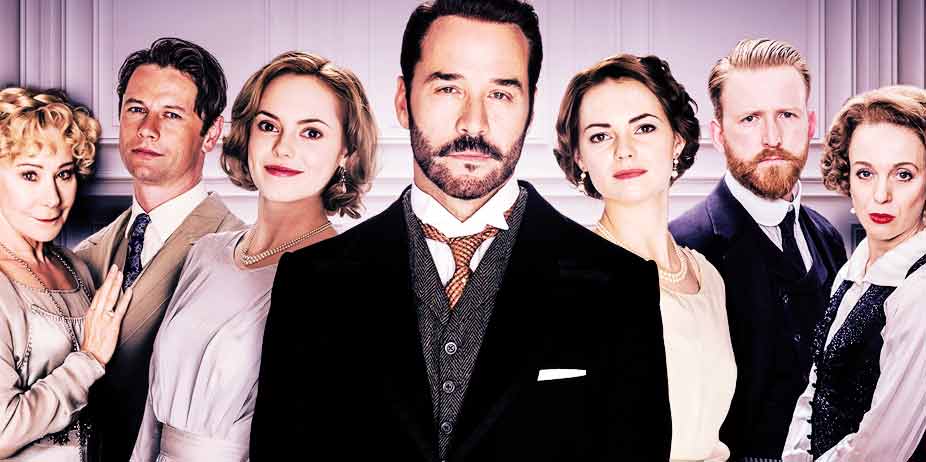
Mr. Selfridge, Season Three (2015)
Imagine reaching the end of an exquisite story, where endless threads are left dangling. You wait in anticipation of seeing what happens to the characters, what becomes of them, whether this man will ever propose, or how that woman will handle a scandal... and when the story returns, it's five years later, half the original characters are gone, and they dismiss all those plot lines that engaged you so much, in the course of a handful of momentary conversations. He's dead. She's gone. Move on.
Naturally, you would feel annoyance. That is the poor situation of the third season of Mr. Selfridge. Every single exciting plot line created in the former season, which left me eager for more... dismissed, resolved, done away with, before the end of the first episode. Welcome to the new cast.
Harry Selfridge (Jeremy Piven) reels from his wife's death of cancer, and buries himself in his work to recover. He finds an easy distraction in his eldest daughter's marriage to an entitled Russian refugee, but becomes frustrated at her husband's repeated attempts to benefit from his Selfridge connections. Meanwhile, the boy's mother runs up an incredible bill at the hotel, and bills it to Harry. Business booms enough at the store to keep him afloat, but his reckless decisions have the lower staff worried. Since the war's end, London floods with out-of-work ex-soldiers, but the women don't want to give up their jobs. And when a charming young woman enters his life, to give him purpose in building homes for ex-military men, Harry doesn't just put his livelihood on the line to show up his old rival Lord Loxley. He risks his heart, as well.
I'll be honest: the fact that this show leapt ahead five years and resolves all the former plot lines within a few minutes did not sit well with me. It left a great deal of potential drama and powerful storytelling (a taboo relationship, a woman dying of cancer, the courtship of two people, and a proposal) in favor of soap-opera elements, revolving around a cast of new characters that, frankly, I don't care about. Lady Mae's absence does the script no favors (the actress left to have a child), which suffers from Rose's absence as well; her daughters are not strong enough personalities to fill in the gaps -- and then the two main leads from the first two seasons, Henri and Agnes, board a train and leave. For good. There goes the romantic tension and the most likable female character involved -- in many ways, the "heart" of the series.
While there is nothing wrong with the costuming and set design, and there are some interesting elements at play here (it addresses the friction between the sexes, when men return home and demand the women's jobs, the perilous job Harry must do in generating a profit in post-wartime London, the housing shortage, etc), but I was too annoyed with Harry by the end of the second episode to concentrate. His characteristic short-sighted foolishness reaches an all time high this season, and he places his entire store, his fortune, and his reputation on the line as a matter of ego. It reminds me of one truth: the audience should never be smarter than your lead character.
Sexual Content:
Implied premarital sex (kissing, unmarried couples waking up
together); references to extra-marital affairs. A man forces a woman to the
ground and fumbles at her skirt (he intends to rape her, until interrupted); she
relives the experience and has to talk about it before the police.
Language:
Occasional mild profanities.
Violence:
Scraps in the storage yards. A man punches a woman in the
face and stomach, shoves her to the ground, kicks her, and tries to rape her.
Riots break out outside the store.
